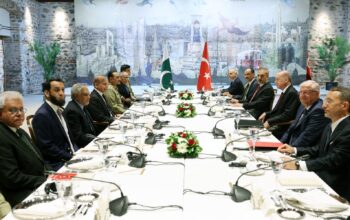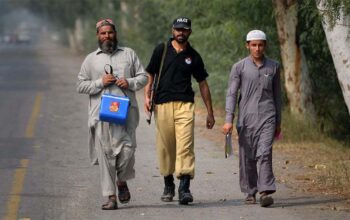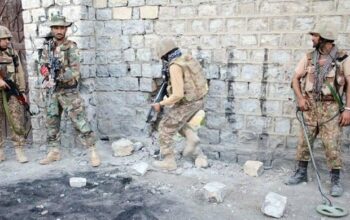By Staff Reporter
ISLAMABAD: The coalition government postponed its plan to grant sweeping powers to the caretaker administration for the upcoming elections, after facing stiff resistance from opposition and allied parties in a joint session of parliament on Tuesday.
The government had sought to pass an election amendment bill that would have allowed the caretakers, who are appointed to oversee the polls, to deal with “urgent matters” that could affect the economy, security, or governance.
But former Senate chairman Raza Rabbani and other lawmakers objected to the move, saying it was not discussed in the parliamentary committee on electoral reforms and violated the rules of procedure.
They argued that the caretakers, who are unelected, should not have the authority to make major decisions that could have long-term implications for the country.
The government’s defence minister Khawaja Asif agreed to defer the bill for a day, saying lawmakers would be given time to study the amendments.
The law minister Azam Nazeer Tarar said the proposed changes were meant to ensure the continuity of policies in line with an IMF agreement and other urgent issues.
He said the bill was finalised after consultations with all parties and widely circulated in the house.
The caretaker setup is expected to take charge in August, ahead of general elections due by November. The caretakers are nominated by the government and the opposition.
Prime Minister Shehbaz Sharif’s Pakistan Muslim League-Nawaz (PML-N) plans to pass legislation on Wednesday to give the caretakers more authority to deal with economic issues and foreign agreements.
The bill, seen by the IP, would amend the Election Act of 2017 to allow the interim administration, which will take over after the dissolution of parliament, to take “necessary” actions to protect Pakistan’s economic interests in bilateral and multilateral deals with international institutions and governments.
The bill would also enable the caretaker government to continue and conclude projects initiated under various laws related to public-private partnerships, inter-governmental transactions, and privatization.
The legislation would also relax some of the eligibility criteria for candidates running for parliament, provincial assemblies, or local governments, such as allowing them to hold honorary positions or receive remuneration from state-owned enterprises or entities.
The bill would also streamline the process of transmitting and compiling the election results by requiring the presiding officers at polling stations to send snapshots of the results electronically or through other technologies to the election commission and the returning officer as soon as possible.
The returning officer would have to communicate the provisional results to the commission by 2 a.m. on the day after the polling day or explain the reasons for any delay in writing.
Copyright © 2021 Independent Pakistan | All rights reserved




